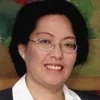Mission Possible
/The Coron District Hospital in Palawan is the first local hospital adopted by a foreign medical mission, the World Surgical Foundation. (Photo courtesy of the Department of Health)
While medical missions are now playing an important role in extending health care access to the needy, certain obstacles that impede their work need immediate attention from government stakeholders. Such attention is necessary because medical missions are now part of the government’s effort to attain health-related Millennium Development Goals (MDGs).
The Universal Health Care/Kalusugan Pangkalahatan (KP) is President Benigno Aquino’s health agenda, which is to ensure that all Filipinos, especially the poor, have access to a reasonable level of health services at minimal cost via enrollment in the National Health Insurance Program, care in modern health facilities, public health services to improve prevention and health outcomes.
Many Filipino medical organizations and other charitable humanitarian groups from all over the world have conducted numerous medical missions to help the poor in the Philippines. The FSMMs have become an avenue for competent expatriates, Filipino doctors, nurses and other health care providers who are eager to serve the country.
Medical missions, with their expected broad-based community support, also aim to stir medical and social awareness of the plight of the Filipino poor, to create a domino effect among medical professionals willing to share their talents and resources.
Adopt a Hospital
The DOH fully supports foreign surgical and medical missions in the country. In fact, under its newly issued “Guidelines on Foreign Surgical and Medical Mission Program in Support of Universal Health Care/Kalusugan Pangkalahatan,” foreign medical and surgical missions shall now be implemented as a full program called the “Adopt a Hospital Program.”
“Medical missions play an important role in President Benigno Aquino’s health agenda, which is to ensure all Filipinos, especially the poor, access a reasonable level of health services at minimal cost.”
Foreign missioners are encouraged to adopt a local hospital on which to focus their resources, medical and surgical missions, medical supply/equipment donations and mentoring/trainings to enhance hospital staff capacity. Compared with the usual one-time and short-dated conduct of medical and surgical missions which provide short-term health services, the Adopt a Hospital Program provides a continuing and long term delivery of health care services.
The DOH commends the World Surgical Foundation (WSF) for being the first foreign organization to adopt a local hospital in the Philippines, the Coron District Hospital in Palawan. The WSF collaborated with different stakeholders including the DOH, the Provincial and Municipal Government of Palawan and the local medical societies for the delivery of healthcare services and medical equipment and the facilitation of customs and tax clearances.
Foreign surgical and medical missions still face many challenges: bureaucratic processes and fees to be paid when getting clearances from the different government agencies; the undue influence of some politicians in the choice of target areas and beneficiaries; lack of structured programs for sustainability and continuity of care; the ignorance of or non-compliance with guidelines and procedures; poor coordination among stakeholders; and non-submission of post mission reports, among others.
Bureaucratic Hurdles
It must be pointed out that most missioners conduct their work and make their donations of medicines, supplies and equipment using their own resources, without outside help. But while such donations are beneficial to the recipients, the acceptance and clearance of such donations are subject to certain terms and conditions under Administrative Order No. 54 s. 2003, Guidelines on the Processing of Importation Through Donations by the Department of Health.
The AO emphasizes that medicines donated must have a shelf life of one year upon arrival in the country and that these must be listed under the National Drug Formulary of the country. Frequently, the DOH shoulders the payment of taxes and duties for medicines and goods consigned to it, fees that sometimes amount to millions of pesos. This leads us to question the cost- benefit of such missions and or donations.
With all these issues, gaps and challenges, the DOH continues its efforts to improve the system, review and issue guidelines, continue dialogues with all stakeholders and intensify advocacy and information dissemination.
All in all, the success of the initiative will depend on how strong, efficient and purposeful the facilitating agency will be. With willing donors and cooperative recipient communities, the government must exhaust efforts to make the system more efficient and truly responsive to the needs of its clients. Compliance with the existing policies and protocols is highly encouraged among donors and missioners.
Madeleine de Rosas-Valera is Undersecretary for Health Policy, Financing and Research Cluster of the Philippine Department of Health. With DOH Foreign Medical and Surgical Mission Team, Bureau of International Health and Cooperation.


